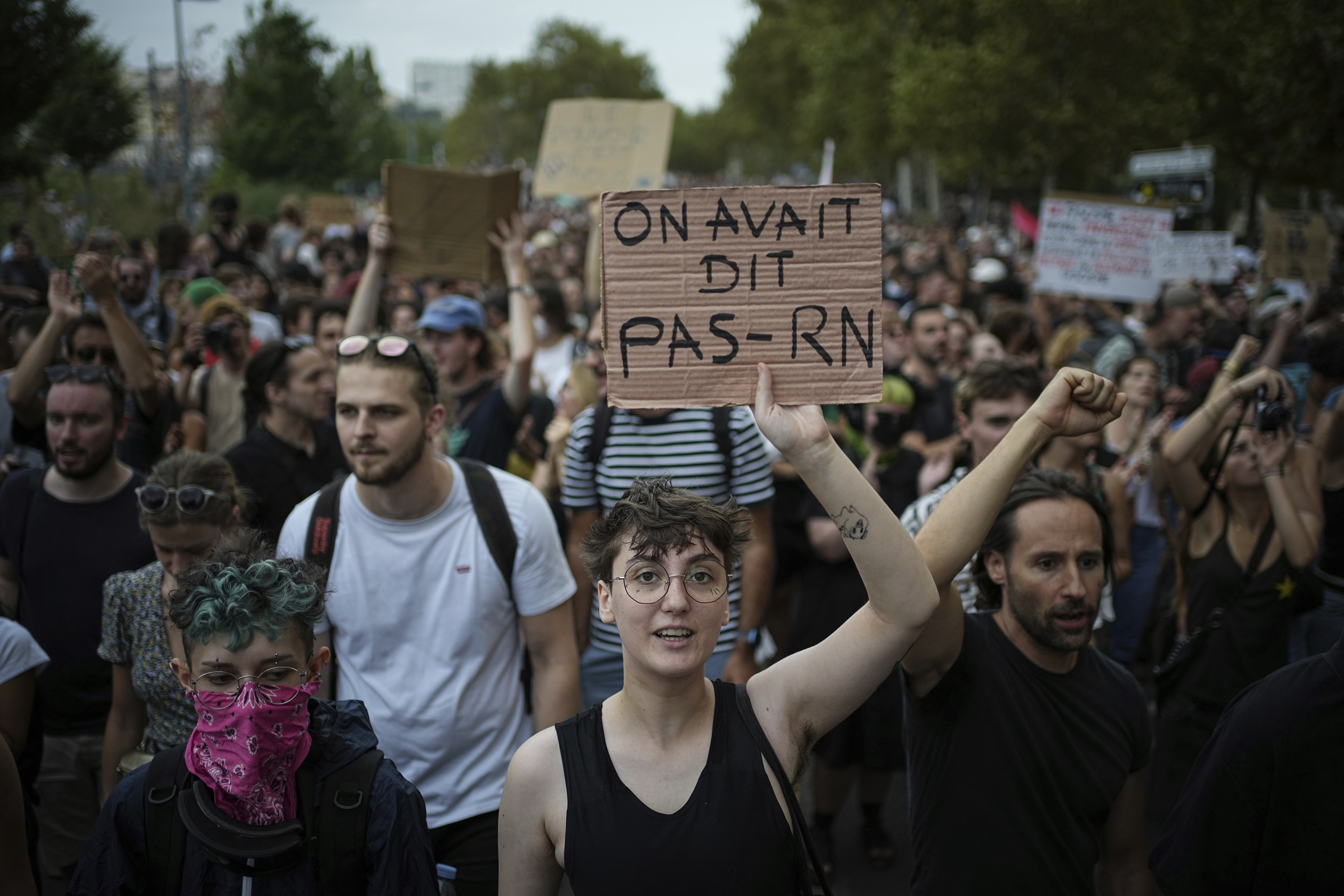In France, what could be a hot autumn for Emmanuel Macron is starting. The decision of the president to appoint a new prime minister in the form of Michel Barnier, a political figure from the conservative right (The Republicans), when it was the left bloc that had the majority of seats in the legislative elections held in July, has brought the left to the streets in several cities in France this Saturday.
Tens of thousands of people have demonstrated across the country to protest this decision, which they consider "a power grab" and "a disregard for democracy." Also, to show their rejection of a Prime Minister they consider illegitimate. According to the organizers, 160,000 people have demonstrated in Paris and around 300,000 in 150 marches across the country. The prefecture says there were 26,000 in the capital.
There is a lot of outrage in the French left, both on the streets and in the seats, because Macron did not choose a prime minister from his own side. Grouped under the New Popular Front bloc, they obtained the majority of seats in the second round of the legislative elections. It includes socialists, communists, ecologists, and also the radical left of La France Insoumise, led by the controversial Jean Luc Mélenchon, who leads the party with the most weight in the bloc.
In the Parisian march, which started at the Bastille square, Mélenchon said, "Democracy is not just about accepting victory, but the humility to accept defeat," in reference to Macron. "I call you to a long-term battle," he appealed to the crowd.
In France, it is the President of the Republic who is responsible for appointing the Prime Minister, who usually comes from the party or bloc with the most votes. This was not the case. But cohabitation with conservative Barnier is easier for Macron, who has always identified more with the center, than with a left that already has divisions due to the positions of Mélenchon and La France Insoumise.
Some of its leaders have warned that they will not participate in the new government, where, as Barnier said on Friday, moderate parties, including those from the left, are welcome. Here, without mentioning them, he excludes La France Insoumise.
Barnier, former minister and former European Commissioner, was the Brexit negotiator when the UK left the EU. At home, it will not be any easier. On Friday, he said in an interview that he will lead a government "without red lines," independent of Macron, "without sectarianism and pragmatic." This Saturday, he met with the President of the Assembly, Yaël Braun-Pivet, and made his first institutional visit. He went to a children's hospital, where he admitted that the situation in the country "is serious" and that he will not "perform miracles." "If you meet a Prime Minister who says he will perform miracles, be wary," he told the journalist who asked him.
Barnier said that his appointment is not "a power grab". "I will not waste time on controversies. I hear the words 'power grab,' but that is not the spirit. The idea is to gather around a project in cooperation with a large part of the deputies."
The majority criticizes that Macron has left the government in the hands of the far right of Marine Le Pen, as she holds the key to censuring it if she supports the motion of censure against the government that the left plans to present as soon as parliamentary sessions resume. For now, it seems more likely that she will not. There is no majority in her favor, but neither against.
The Secretary General of the Socialists, Olivier Faure, has denounced that Macron has put himself "under the tutelage of National Rally." The winner of the Jordan Bardella, in the European elections in June that triggered the current French political upheaval, has said: "Nothing can be done now without us."
"Mr. Barnier is a Prime Minister under surveillance, under the democratic supervision of a party that is essential in parliamentary and political play today," he said. National Rally is the party that received the most votes in the legislative elections, despite ultimately finishing in third place. It is the party with the most deputies.
Barnier replied: he is not under the surveillance of his party, but "under the democratic supervision of all French people and parliamentary groups representing the French people."
